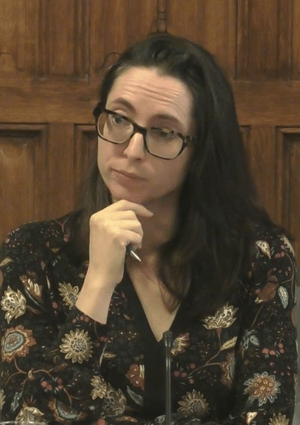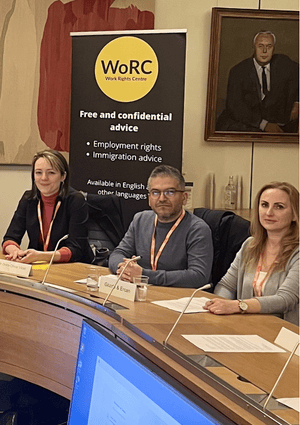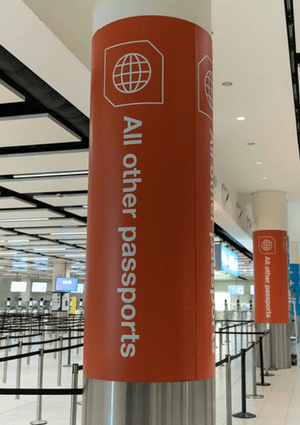Latest

Experts warn Parliament that ‘earned’ settlement proposals are risky for all
Across 12 oral evidence sessions, leading experts from academia, industry, the legal sector and civil society told the Commons and Lords: "earned" settlement plans risk causing serious damage to our society and economy.
Read moreRead more
‘We are asking for our rights’: when lived experience met legislative power in Westminster
At our first Westminster event, held in collaboration with Neil Duncan-Jordan MP and Unison, migrant workers themselves told MPs and journalists how the “earned” settlement plans would impact their families, careers, and dreams.
Read moreRead more
A fundamental rejection: our submission to the Home Office’s “earned” settlement
We have submitted supplementary evidence to the Home Office fundamentally rejecting the "earned” settlement proposals as they would undermine integration, increase poverty, and fuel systemic exploitation.
Read moreRead more
Over 70 parliamentarians join our call to axe retrospective settlement plans
A broad coalition of parliamentarians, unions, and civil society have joined the Work Rights Centre and Labour MP Neil Duncan-Jordan in an open letter urging the Home Secretary to halt the consultation on "earned" settlement.
Read moreRead more
Will the Fair Work Agency put immigration enforcement before workers’ rights?
Following announcements in the budget, we are concerned that the Fair Work Agency's focus and resources are being shifted away from protecting the most vulnerable workers, and towards tougher immigration enforcement.
Read moreRead more